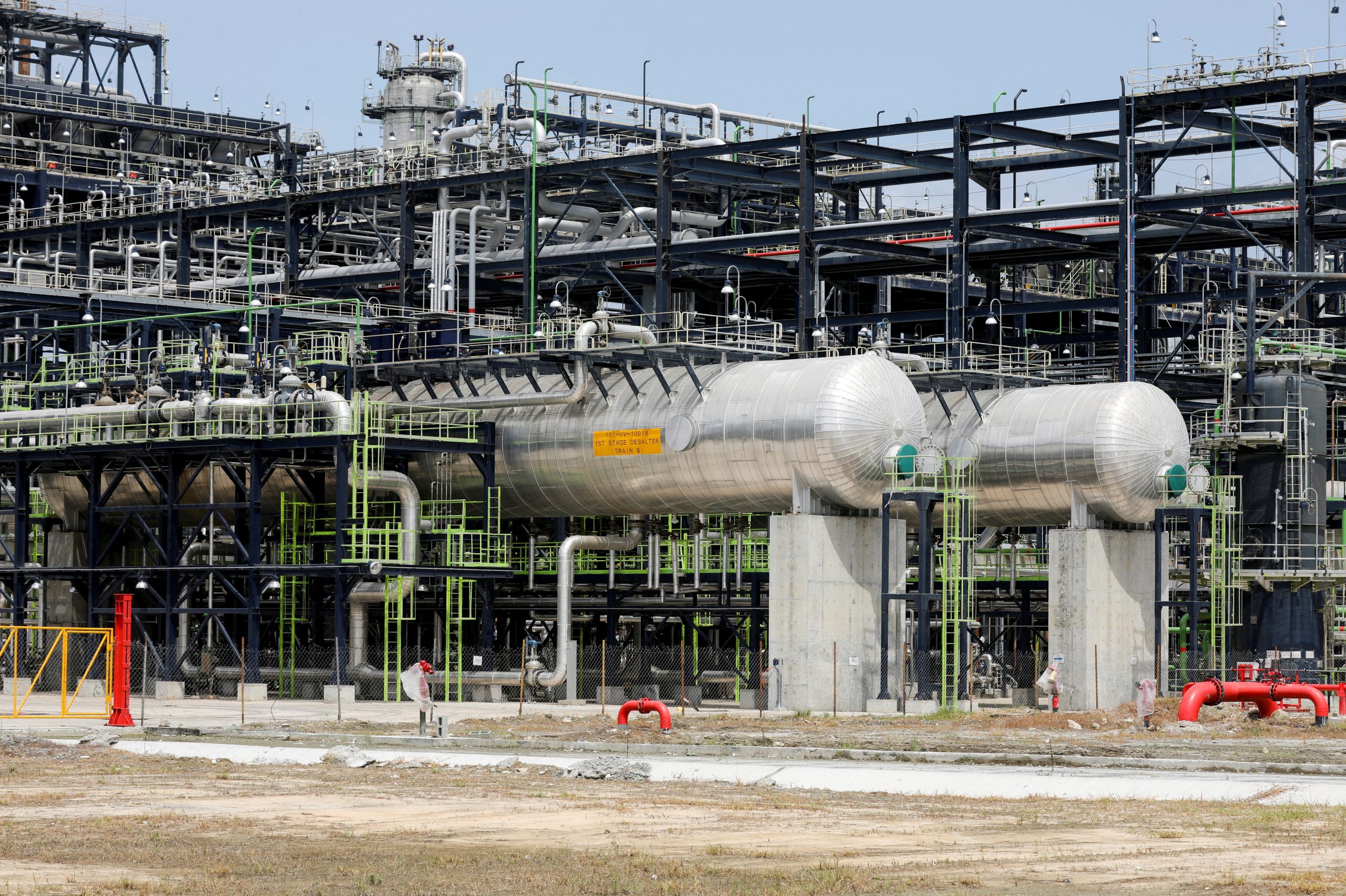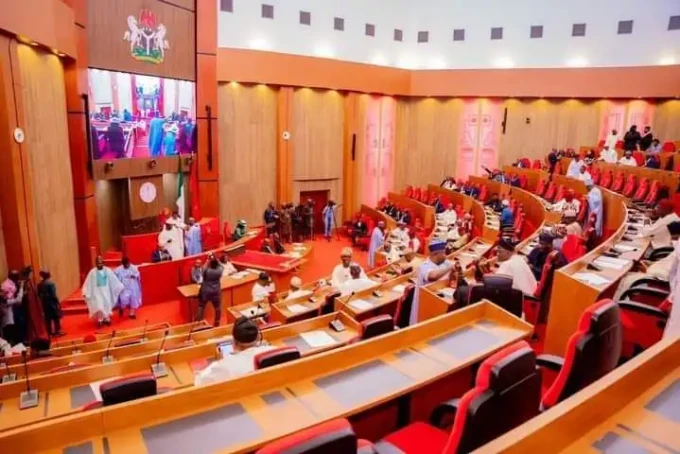Dangote Petroleum Refinery, one of Africa’s largest, has announced plans to import crude oil feedstock due to insufficient supply from the Nigerian National Petroleum Company Limited (NNPCL). This decision comes as the refinery scales up its production capacity, aiming for significant milestones in the coming months.
According to an anonymous official speaking to DAILY POST, the refinery has already increased its production to 500,000 barrels per day (bpd) and is set to reach a capacity of 650,000 bpd by June 2025. This expansion, however, highlights a critical shortfall in local crude supply. The official stated that NNPCL has only been able to provide approximately 350,000 bpd out of the 450,000 bpd allocated for Nigeria’s domestic consumption. This discrepancy leaves the refinery with no alternative but to seek crude from international markets to meet its growing demand.
The need for importation was underscored by the official who noted, “Currently, we are at 500,000 bpd; we will ramp to 650,000 by midyear. Do you know what it means? So, it is a normal process to source crude oil anywhere it is available.” This move towards importing reflects broader challenges within Nigeria’s oil sector, where domestic production has not kept pace with refinery requirements.
The backdrop to this situation includes a policy initiative from July 2024 when the President approved a deal allowing crude sales in Naira to boost local refining capacities, targeting 450,000 bpd specifically for domestic refineries. Despite this, the implementation has been uneven. In October, a committee announced that NNPCL should commence supplying crude for fuel production at refineries like Dangote. However, the actual supply has fallen short, pushing refineries towards international sourcing.
Further complicating the scenario, the revival of the Port Harcourt and Warri refineries in late 2024 adds more demand on the already strained domestic crude supply. The Nigerian Upstream Petroleum Regulatory Commission projected that eight refineries would require approximately 123.5 million barrels of crude in the first half of 2025 alone.
Devakumar Edwin, Vice President at Dangote Industries, emphasized the implications of this situation, stating, “Importing crude from other countries instead of buying locally means that our crude stockpiles will have to be higher.” This reflects not just an immediate operational necessity for the refinery but also points to broader strategic considerations about Nigeria’s oil reserves and the economics of local versus imported crude.
The shift to importing crude oil by Dangote Refinery underscores the urgent need for Nigeria to address its oil production challenges and ensure that domestic refineries can operate at their full capacity without reliance on foreign sources. This scenario also highlights the complexities of managing national oil resources amidst global market dynamics and internal policy implementations.
In summary, the Dangote Refinery’s move to import crude oil is a pragmatic response to local supply constraints but also signals potential vulnerabilities in Nigeria’s oil sector strategy that need addressing to secure energy independence and economic benefits from its vast oil reserves












Why cant Dangote Refinery prioritize local supply first before looking internationally? Local needs should come first. #SupportLocal #DangoteRefinery
I find it concerning that a major refinery like Dangotes has to look abroad for crude oil. Whats happening locally?
Wow, isnt it ironic that a refinery in Nigeria is looking abroad for oil when they have reserves at home? Whats the deal with that?
Wow, isnt it ironic how a refinery in Nigeria is importing crude oil while being in an oil-rich country? Whats going on? 🤔
I think its a smart move for Dangote Refinery to look internationally for crude oil. They gotta do what they gotta do, right?
I cant believe Dangote Refinery is looking abroad for crude oil! Isnt Nigeria supposed to be self-sufficient in oil? 🤔
Do you think Dangote should prioritize local sourcing for crude oil, or is looking internationally the way to go? Lets discuss!
Shouldnt Dangote prioritize local supply chains over international markets? Supporting local economy should come first. #JustSaying 🤔🌍
This move by Dangote Refinery seems risky. Shouldnt they focus on local supply first before venturing into international markets? 🤔